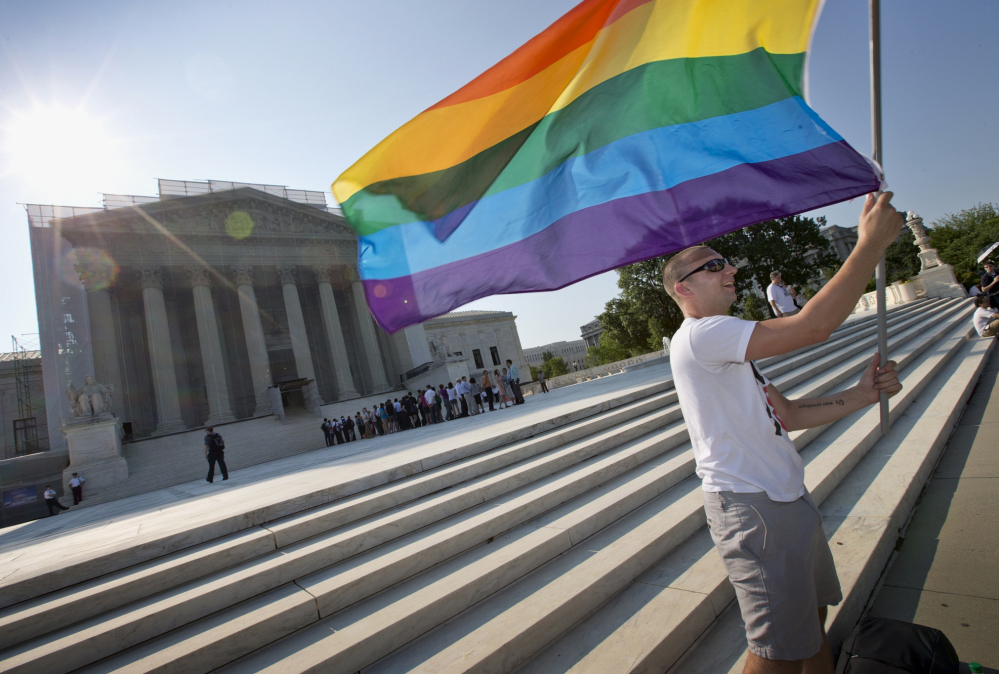WASHINGTON — The Supreme Court will end the term’s oral argument schedule in April with important cases on same-sex marriage and the death penalty. And the justices announced Thursday that they will release same-day audio of the arguments on whether the Constitution protects the right of same-sex couples to marry.
The court will hear the same-sex marriage cases – collectively known as Obergefell v. Hodges – on April 28. The court has set aside 2 1/2 hours for oral arguments, which will concentrate on two questions: May states limit marriage to its traditional definition as only between a man and a woman? And must a state recognize same-sex marriages performed where it is legal?
The U.S. Court of Appeals for the 6th Circuit differed from every other federal appeals court in the country that has confronted the questions when it ruled that Kentucky, Michigan, Ohio and Tennessee are entitled to restrict licensing and recognition to heterosexual couples.
The Supreme Court in 2013 struck down a part of the Defense of Marriage Act that said the federal government would not recognize same-sex marriages performed where they are legal. But it has not ruled on the state recognition question, or whether states – which traditionally define marriage – must offer licenses to same-sex couples.
Dozens of federal courts have read the court’s reasoning in the DOMA case to mean that state bans on same-sex marriage are unconstitutional, and gay couples currently may marry in three dozen states and the District of Columbia.
The court generally does not release audio of its proceedings on the same day as oral arguments. It turned down a request to do so in Wednesday’s case about the Affordable Care Act, King v. Burwell. But it decided differently in the marriage cases.
Arguments in the Obergefell cases will start at 10 a.m., and the court’s news release said, “The court will post the audio recording and unofficial transcript as soon as the digital files are available for uploading to the Website. The audio recording and transcript should be available no later than 2 p.m. on April 28.” They will be posted at supremecourt.gov.
The death penalty case involves the lethal injection method used in Oklahoma. Critics of lethal injection have warned that the sedative midazolam might subject those being executed to painful conditions that would violate the Constitution’s ban on cruel and unusual punishment.
Glossip v. Gross, the court’s first look at lethal injection procedures since 2008, will be heard on April 29, the last day of oral arguments.
Send questions/comments to the editors.



Success. Please wait for the page to reload. If the page does not reload within 5 seconds, please refresh the page.
Enter your email and password to access comments.
Hi, to comment on stories you must . This profile is in addition to your subscription and website login.
Already have a commenting profile? .
Invalid username/password.
Please check your email to confirm and complete your registration.
Only subscribers are eligible to post comments. Please subscribe or login first for digital access. Here’s why.
Use the form below to reset your password. When you've submitted your account email, we will send an email with a reset code.